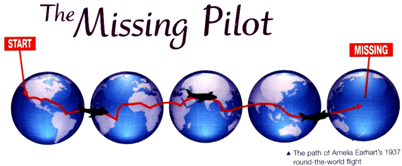
| 36£®A£®amazing | B£®clear | C£®unusual | D£®important |
| 37£®A£®neighbours | B£®children | C£®friends | D£®classmates |
| 38£®A£®attention | B£®comment | C£®view | D£®interest |
| 39£®A£®She | B£®It | C£®He | D£®I |
| 40£®A£®for | B£®or | C£®and | D£®when |
| 41£®A£®before | B£®after | C£®when | D£®once |
| 42£®A£®want | B£®have | C£®hold | D£®attend |
| 43£®A£®make | B£®choose | C£®find | D£®give |
| 44£®A£®album | B£®novel | C£®mirror | D£®overcoat |
| 45£®A£®went on | B£®poured in | C£®turned back | D£®got away |
| 46£®A£®could | B£®should | C£®would | D£®might |
| 47£®A£®decision | B£®story | C£®mind | D£®book |
| 48£®A£®for | B£®around | C£®with | D£®except |
| 49£®A£®grateful | B£®worried | C£®nervous | D£®special |
| 50£®A£®meaning | B£®gift | C£®party | D£®world |
| 51£®A£®count | B£®read | C£®express | D£®improve |
| 52£®A£®took | B£®sent | C£®placed | D£®packed |
| 53£®A£®how | B£®why | C£®which | D£®what |
| 54£®A£®normally | B£®merely | C£®really | D£®obviously |
| 55£®A£®whether | B£®that | C£®when | D£®who |
·ÖÎö ÔÚÆÞ×Ó50ËêÉúÈÕʱ£¬ÕÉ·òË͸øÆÞ×ÓÒ»·ÝÌØÊâµÄÀñÎÄÇÊÇÒ»±¾¾«ÐÄÖÆ×÷µÄÊ飬¼Ç¼ÁËÆÞ×Ó¼¸Ê®ÄêÀ´¶ÔÅóÓѺͼÒͥȫ²¿µÄ°®£®
½â´ð BCADC BADAB CDCAB BADCB
36£®B£®¿¼²éÐÎÈݴʱæÎö£®¸ù¾Ý±¾¶Î×îºóÀ¨ºÅÀïµÄÄÚÈÝ¿ÉÖª£ºÏÔÈ»£¬Carol²»Ï²»¶ÎÒΪËý¾Ù°ìÒ»¸öÉúÈÕÑç»á£»¹ÊÑ¡B£®
37£®C£®¿¼²éÃû´Ê±æÎö£®ÎÒÎÊËý£¬"ÕÒ¼¸¸öºÃÓѾ۲ÍÔõôÑù£¿"£»¹ÊÑ¡C£®
38£®A£®¿¼²éÃû´Ê±æÎö£®Ëý˵Ëý²»Ï²»¶³ÉΪ´ó¼Ò¹Ø×¢µÄÖÐÐÄ£®ÒòΪÊÇCarol¹ýÉúÈÕ£¬Ëýµ±È»»á³ÉΪ´ó¼Ò¹Ø×¢µÄÖÐÐÄ£®attention"×¢ÒâÁ¦"£¬·ûºÏÓï¾³£»¹ÊÑ¡A£®
39£®D£®¿¼²éÃû´Ê±æÎö£®´Ë´¦±íʾÎÒ²»ÏëÈÃËýÉúÈÕµÄÄÇÌì¾ÍÕâÑùËæ±ã¹ýÈ¥--³ÔStoufferÅƵÄÀ䶳ʳÎ¿´Ò»¸öµçÓ°ÊÓƵ£»¹ÊÑ¡D£®
40£®C£®¿¼²éÁ¬´Ê±æÎö£®Ç°ºó¾ä±íʾ²¢ÁУ¬¹ÊÑ¡and£®Ëý˵Õâ¾ÍÊÇËý£¨ÔÚÉúÈÕÄÇÌ죩ÏëÒªµÄÒ»ÇУ»¹ÊÑ¡C£®
41£®B£®¿¼²éÁ¬´Ê±æÎö£®ÎÒÏëÁËÓÖÏ룬×÷³ö¾ö¶¨Ö®ºó£¬ÎÒ¿ªÊ¼¸øCarolµÄÅóÓÑÃÇдÐÅ£»¹ÊÑ¡B£®
42£®A£®¿¼²é¶¯´Ê±æÎö£®Carol²»Ï루want£©¾ÙÐÐÉúÈÕÑç»á£®µÚÒ»¶ÎµÄ"she didn't want a party"ÊÇÏßË÷Ìáʾ£»¹ÊÑ¡A£®
43£®D£®¿¼²é¶¯´Ê±æÎö£®ÎÒÏë¸øËý¾Ù°ìÒ»¸öÊé±¾ÉϵÄÅɶԣ®give sb£®a partyÒâΪ"ΪijÈ˾ٰìÒ»¸öÅɶÔ"£»¹ÊÑ¡D£®
44£®A£®¿¼²éÃû´Ê±æÎö£®ÎÒÔÚÒ»¸öÅóÓѵĽ¨ÒéÏÂÂòÁËÒ»±¾Ïà²á£¨album£©£®µ¹ÊýµÚ¶þ¶Îµ¹ÊýµÚÈýÐÐÖеÄ"more than the album"ÊÇÏßË÷Ìáʾ£»¹ÊÑ¡A£®
45£®B£®¿¼²é¶ÌÓï±æÎö£®¸ù¾ÝÏÂÎÄ¿ÉÖª´Ë´¦±íʾÎÒ°ÑÏëÒªµÄ¶«Î÷²»¶ÏµØ·ÅÈëÏà²áÖУ®pour in"²»¶ÏÓ¿Ïò"£¬·ûºÏÓï¾³£®go on"¼ÌÐø"£»turn back"Íù»Ø×ß"£»get away"ÍÑÉí£»ÌÓÀë"£»¹ÊÑ¡B£®
46£®C£®¿¼²é¶¯´Ê±æÎö£®´Ë´¦would±íʾ"£¨¹ýÈ¥£©³£³££¬×ÜÊÇ"£®ÎÒ×ÜÊÇÔÚÿ¸ö¹¤×÷ÈÕ¿ì½áÊøµÄ¼¸·ÖÖÓΪÆÞ×ÓÖÆ×÷Õâ±¾Ê飻¹ÊÑ¡C£®
47£®D£®¿¼²éÃû´Ê±æÎö£®ÉÏÎÄÄÚÈÝ°µÊ¾£¬ÎÒÒª¸øCarolÖÆ×÷Ò»±¾Ê飻¹ÊÑ¡D£®
48£®C£®¿¼²é½é´Ê±æÎö£®ÎÒËѼ¯µ½µÄÓÐËýÉϸßÖÐʱµÄÕÕƬ£¬ÎÒÃÇÁ©ºÍ¶ù×ÓÃÇÔÚÒ»ÆðµÄÕÕƬµÈµÈ£®with±íʾ"Óë¡ÔÚÒ»Æð"£»¹ÊÑ¡C£®
49£®A£®¿¼²éÐÎÈݴʱæÎö£®ÊÕ¼¯µ½µÄ¶«Î÷ÈÃÎҷdz£¸Ð¼¤ÎÒÃÇÒ»Æð×ß¹ýµÄËêÔ£®be grateful for"¸Ð¼¤¡"£»¹ÊÑ¡A£®
50£®B£®¿¼²éÃû´Ê±æÎö£®Õâ·ÝÀñÎï²¢²»½ö½öÊÇÒ»±¾Ïà²á£®Õâ´ú±íÁËËý¶ÔÎÒ¡¢º¢×Ó¡¢ËýËùÓеÄÅóÓÑÒÔ¼°¼ÒÍ¥µÄ°®ºÍÓÑÒꣻ¹ÊÑ¡B£®
51£®B£®¿¼²é¶¯´Ê±æÎö£®ÔÚÕâ±¾ÊéµÄÿһҳÖУ¬Ä㶼ÄÜ"¶Á"µ½ÕâЩ£»¹ÊÑ¡B£®
52£®A£®¿¼²é¶¯´Ê±æÎö£®ÎÒ°ÑÕâ±¾Êé°ü×°ºÃÖ®ºó´ø»Ø¼ÒÖУ®take it home"´ø»Ø¼Ò"£»¹ÊÑ¡A£®
53£®D£®¿¼²é½é´Ê±æÎö£®ÎÒ˵£º"Õâ¿É²»ÊÇÒ»¶ÙÀ䶳µÄ·¹²Ë»òÕßÊÇÒ»¸öÊÓƵ£¬¶øÊÇÄãÖµµÃÓµÓеĶ«Î÷£®""what you deserve"Ϊ±íÓï´Ó¾ä£»¹ÊÑ¡D£®
54£®C£®¿¼²é¸±´Ê±æÎö£®Ëý¿ÞÁË£®Êµ¼ÊÉÏ£¬Ëý²»Ï²»¶¿Þ£®µ«ÊÇÎÒÈÏΪÕâ±¾Êé¸Ð¶¯ÁËËý£®really"ʵ¼ÊÉÏ"£»¹ÊÑ¡C£®
55£®B£®¿¼²éÁ¬´Ê±æÎö£®Ã¿Ò»´ÎÎÒ¶¼ÌáÐÑËýÕûÀí³öÕâ±¾Êé¶ÔÎÒÀ´ËµÒ²ÊÇÒ»¸öÀñÎ¿Õ°×´¦Ö®ºóΪ±öÓï´Ó¾ä£¬´Ó¾äÖв»È±ÉÙ¾ä×ӳɷ֣¬Òò´ËÓÃthatÁ¬½Ó£»¹ÊÑ¡B£®
µãÆÀ ¿¼²ìѧÉúµÄÍÆÀíÅжÏÄÜÁ¦ºÍÁªÏµÉÏÏÂÎĵÄÄÜÁ¦£¬ÔÚ×öÍÆÀíÅжÏÌâ²»ÒªÒÔ¸öÈ˵ÄÖ÷¹ÛÏëÏó´úÌæÎÄÕµÄÊÂʵ£¬Òª¸ù¾ÝÎÄÕÂÊÂʵ½øÐкϺõÂß¼µÄÍÆÀíÅжϣ®´ËÀàµÄÌî¿ÕÌâÒ»¶¨ÒªÁªÏµÉÏÏÂÎÄ£¬¸ù¾ÝÉÏÏÂÎĵÄÄÚÈݼÓÉÏ×Ô¼ºµÄÀí½â£¬ÔÙ×÷³öÕýÈ·µÄÅжϣ®


 ÔĶÁ¿ì³µÏµÁдð°¸
ÔĶÁ¿ì³µÏµÁдð°¸
| Ä꼶 | ¸ßÖÐ¿Î³Ì | Ä꼶 | ³õÖÐ¿Î³Ì |
| ¸ßÒ» | ¸ßÒ»Ãâ·Ñ¿Î³ÌÍƼö£¡ | ³õÒ» | ³õÒ»Ãâ·Ñ¿Î³ÌÍƼö£¡ |
| ¸ß¶þ | ¸ß¶þÃâ·Ñ¿Î³ÌÍƼö£¡ | ³õ¶þ | ³õ¶þÃâ·Ñ¿Î³ÌÍƼö£¡ |
| ¸ßÈý | ¸ßÈýÃâ·Ñ¿Î³ÌÍƼö£¡ | ³õÈý | ³õÈýÃâ·Ñ¿Î³ÌÍƼö£¡ |
¿ÆÄ¿£º¸ßÖÐÓ¢Óï À´Ô´£º ÌâÐÍ£ºÔĶÁÀí½â

²é¿´´ð°¸ºÍ½âÎö>>
¿ÆÄ¿£º¸ßÖÐÓ¢Óï À´Ô´£º ÌâÐÍ£ºÍêÐÎÌî¿Õ
| 51£®A£®As a result | B£®In fact | C£®By contrast | D£®On the contrary | |
| 52£®A£®conflict | B£®lives | C£®relationships | D£®affairs | |
| 53£®A£®violent | B£®global | C£®unresolved | D£®unavoidable | |
| 54£®A£®remark | B£®assumption | C£®insult | D£®resolution | |
| 55£®A£®Preferencefor | B£®Particularity about | C£®Complaint over | D£®Laughter over | |
| 56£®A£®interpret | B£®practice | C£®assess | D£®bend | |
| 57£®A£®soft | B£®tough | C£®critical | D£®clear | |
| 58£®A£®measure | B£®strategy | C£®assessment | D£®application | |
| 59£®A£®responses | B£®attitudes | C£®roles | D£®intentions | |
| 60£®A£®Contrarily | B£®Relatively | C£®Consequently | D£®Finally | |
| 61£®A£®accomplish | B£®ignore | C£®foresee | D£®seek | |
| 62£®A£®wider | B£®clearer | C£®more complex | D£®more critical | |
| 63£®A£®unselfish | B£®initial | C£®inspiring | D£®careful | |
| 64£®A£®cooperation | B£®argument | C£®gratitude | D£®support | |
| 65£®A£®admire | B£®select | C£®deal with | D£®back up | |
²é¿´´ð°¸ºÍ½âÎö>>
¿ÆÄ¿£º¸ßÖÐÓ¢Óï À´Ô´£º ÌâÐÍ£ºÐÅϢƥÅä
²é¿´´ð°¸ºÍ½âÎö>>
¿ÆÄ¿£º¸ßÖÐÓ¢Óï À´Ô´£º ÌâÐÍ£ºÐÅϢƥÅä
²é¿´´ð°¸ºÍ½âÎö>>
¿ÆÄ¿£º¸ßÖÐÓ¢Óï À´Ô´£º ÌâÐÍ£ºÔĶÁÀí½â
²é¿´´ð°¸ºÍ½âÎö>>
¿ÆÄ¿£º¸ßÖÐÓ¢Óï À´Ô´£º ÌâÐÍ£ºÔĶÁÀí½â
²é¿´´ð°¸ºÍ½âÎö>>
¿ÆÄ¿£º¸ßÖÐÓ¢Óï À´Ô´£º ÌâÐÍ£ºÔĶÁÀí½â
²é¿´´ð°¸ºÍ½âÎö>>
¿ÆÄ¿£º¸ßÖÐÓ¢Óï À´Ô´£º ÌâÐÍ£ºÔĶÁÀí½â
²é¿´´ð°¸ºÍ½âÎö>>
°Ù¶ÈÖÂÐÅ - Á·Ï°²áÁбí - ÊÔÌâÁбí
ºþ±±Ê¡»¥ÁªÍøÎ¥·¨ºÍ²»Á¼ÐÅÏ¢¾Ù±¨Æ½Ì¨ | ÍøÉÏÓк¦ÐÅÏ¢¾Ù±¨×¨Çø | µçÐÅթƾٱ¨×¨Çø | ÉæÀúÊ·ÐéÎÞÖ÷ÒåÓк¦ÐÅÏ¢¾Ù±¨×¨Çø | ÉæÆóÇÖȨ¾Ù±¨×¨Çø
Î¥·¨ºÍ²»Á¼ÐÅÏ¢¾Ù±¨µç»°£º027-86699610 ¾Ù±¨ÓÊÏ䣺58377363@163.com